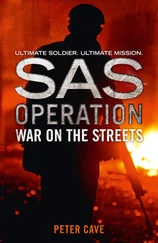‘‘Let me ask this: Have you been in communication with them?”
Radford took a sip from his drink. His mind raced. He'd anticipated Grishkov’s question because he knew that the Russians monitored but couldn’t break ELF or VHF signals sent to U.S. submarines on patrol around the world. And there was no way the Russians could determine which submarines the messages had been sent to, not even the K-480.
‘‘Yes, we have communicated with them.”
“When was the last time?”
“The day you issued the recall order. We sent Scott an interrogatory to confirm he’d received it, and he had.”
“And what did he tell you?”
“Now, Mikhail…”
‘I'm not asking that you divulge classified information. I simply want to know: Did he confirm receipt of our recall and say he'd return to Olenya Bay?”
“Yes, that's what he said.”
“That was twenty-four hours ago. The K-480 has not returned to base, nor has Botkin broadcast his position twice daily as ordered. This officer you have aboard, Scott, he’s what you Americans call a loose cannon, yes?”
“Scott wouldn't disobey a direct order.”
“A direct order from you, you mean.”
Radford kept his iron composure. “What are you implying, Mikhail?”
“Indulge me to think out loud, Karl. What I am thinking is that your Captain Scott received secret orders to move south, into waters around Norway and Sweden.”
“Secret orders from whom?”
Grishkov allowed a mild annoyance to temper his voice. “Someone in your government. Someone high up.”
“What reason would we have to send Scott and the K-480 south to Norway and Sweden?”
Grishkov rubbed out his cigarette. “Because you believe that’s where Zakayev and Litvanov are headed.”
“That’s absurd and you know it. Zakayev and Litvanov are in the Barents. If you’re having trouble finding them, don't blame us. We offered to help but you refused. If you’ve changed your mind, say so, but don’t come to me with some half-assed theory that we’re telling Scott to ignore your orders. That doesn’t make any sense.”
“No? Something seems to have gotten your serious attention, Karl. We’ve detected a sudden increase in P-З surveillance flights over the Norwegian Sea and as far south as the Skag. There’s also been an increase in Norwegian ASW activity. Perhaps the K-363 is headed south—was headed south all along — and you’ve told Scott not to obey our recall order, and also that he is to find the K-363 and torpedo it — torpedo it even in the Baltic if necessary.”
“The Baltic? Where did you come up with that idea? What the hell’s in the Baltic that you think would interest a group of terrorists in a submarine? Surely not Kaliningrad, that old broken-down base you have there. Or do you think Zakayev plans to sneak into the Gulf of Riga and sink one of your old flattops or missile cruisers? Is that it?”
Grishkov lit a fresh cigarette. He waved smoke away from in front of his face and said, “I don't know if that’s it. That’s why I asked for this conference. I was hoping you would tell me what happened to the K-480 if not the K-363. They’re both missing.”
“What do you mean, the K-363 is missing?”
“She’s not in the Barents Sea.”
“How do you know that?”
“Please, Karl, we poor Russians don’t have half the navy or satellites America has, but we are not totally impotent. And we are not fools. We put what we have to work in the Barents Sea and have come up empty handed. Believe me, if the K-363 were there, we’d have found her by now.”
Radford pushed back in his chair. The iced Scotch had left a ring of water in its coaster and he touched it with a fingertip. Grishkov, grasping at straws, didn’t realize he’d caught one.
“I must tell you, Karl, I have only one more day in which to find the K-363. If I don’t, Stashinsky will relieve me of command.”
Radford almost felt sorry for the Russian but said nothing.
“My gut tells me that the K-363 is not hiding in the Barents,” said Grishkov. “So perhaps you will tell me now the truth. Do you know if Litvanov is making for the Baltic Sea?”
Radford had his answer ready. “No, I don’t.”
“I see. By the way, you know of course that the only way to reach St. Petersburg by sea is through the Baltic and the Gulf of Finland.”
“Yes, I know that.”
“Thank you for keeping our conversation confidential. I appreciate it.”
* * *
A trip-hammer went off in his chest. He needed air but couldn’t breath. Everything seemed to be moving in slow motion: his ship, his men, the North Korean frigate bearing down. He tried to warn Alex, but it was too late.
“What?”
The starpom’s face floated into view, “Captain Scott, sir, sorry to wake you, but you are needed in the CCP. Sonar contact.”
The hum of machinery. Muted voices. The dank familiar smell of the K-480.
Scott, fully awake now, swung off his bunk and said. “What do you have?”
The starpom rattled off their course, speed, and position south of Vega, Norway. Then: “Sound has picked up two sets of screws, bearing dead ahead.”
“On my way.”
In the CCP, Botkin, looking pale, said, “Two ships. Norwegian frigates. Each has a towed sonar array deployed.”
Tactical plot had already worked a torpedo firing solution on them.
Scott acknowledged Alex and Yuri Abakov’s arrival in the CCP. He glanced at the coastal chart of Norway, its filigree of islands and fjords. “They're here,” he said for their benefit, “and moving toward us. We can hear them upstairs, their VDS arrays are passive. They're definitely listening for something.”
“The K-363?” Abakov said.
“Bet on it,” Scott said.
“Then may I make an observation?”
“Go ahead.”
“I’m not pretending to be a naval tactician, but from everything I’ve seen so far and feel in my gut, Zakayev and Litvanov are long gone—south. The Norwegians up there are like a couple of cops looking under the bed for a robber who went out the back door. They’re wasting their time looking for them and instead they’re going to find us—”
A wailing APD—Air Particle Detector—alarm cut him off. A split second later a red warning light started flashing on and off.
Botkin, his face a mask of fear, froze at the periscope stand.
A recorded female voice exploded from the SC1: “Condition Red, Compartment Seven! Condition Red, Compartment Seven!”
“Decreasing pressurizer level!” warned the starpom. Without waiting for orders, he rang up slow speed to reduce reactor power.
“What is it?” Alex shouted over the din.
“Reactor coolant leak!” Botkin croaked.
“SCRAM the reactor!” Scott ordered.
The starpom activated the remote and a beat later replied, “Nothing!”
“Reactor Control Compartment!” Scott shouted. “Let’s go!”
Sailors flattened themselves against machinery-lined passageways as Scott and Alex, high-stepping over water tight door coamings, dashed for the Reactor Control Compartment.
At the after end of Compartment Six they found the terrified chief engineer and main propulsion engineer gawking at the reactor control console. Their coveralls were black with sweat and they had already broken out OBAs—oxygen breathing apparatuses—and silver steam suits. Flashing red warning lights and the honking alarm made the darkened compartment look and sound like a scene from hell.
The two engineers prepared to don their old-fashioned OBAs, full-face rubber masks with glass eye ports and corrugated black hoses for plugging into belt mounted breathing canisters or into the ship's central air system.
“Put those away,” Scott commanded. “There’re no poisonous fumes in here.”
Читать дальше












